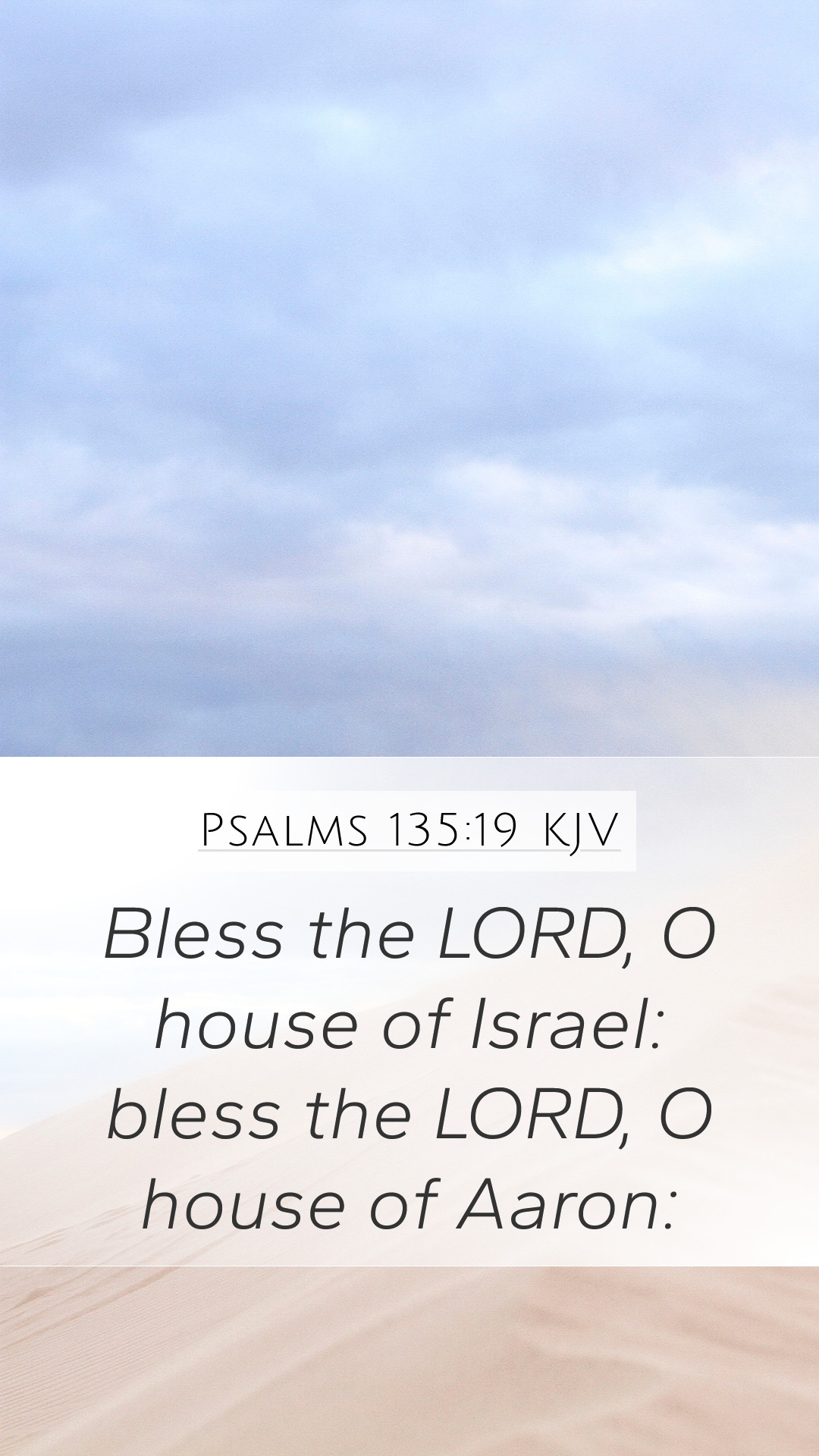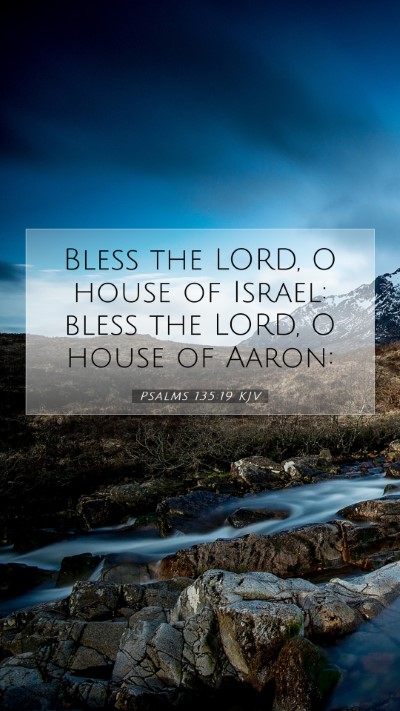Understanding Psalms 135:19: A Comprehensive Bible Verse Explanation
This section delves deep into Psalms 135:19, providing an extensive overview of its meaning, interpretations, and applications in daily life. Drawing from esteemed public domain commentaries, we aim to elucidate the rich significance embedded in this scripture.
Verse Text
Psalms 135:19 (KJV): "O house of Israel, bless the Lord: O house of Aaron, bless the Lord: O house of Levi, bless the Lord: ye that fear the Lord, bless the Lord."
Meaning of the Verse
The verse serves as a call to worship and praise directed towards different groups within the community of Israel. Here we summarize insights from prominent commentators:
-
Matthew Henry: Henry emphasizes that the verse calls all segments of the Jewish community—the House of Israel, the House of Aaron (the priestly class), and the House of Levi—to engage in worship. He notes the inclusive nature of the command, urging everyone who reveres God to praise Him. This highlights the collective duty of all believers to glorify God.
-
Albert Barnes: Barnes elaborates on the emphasis placed on the phrase "bless the Lord," suggesting that blessing the Lord encompasses not only verbal praise but engaging one's life in actions that honor God. He underscores the importance of corporate worship, hinting that the congregation plays a vital role in honoring God's sovereignty.
-
Adam Clarke: Clarke provides insights on the phraseology used, pointing out the significance of mentioning distinct groups—Israel, Aaron, Levi—indicating their unique roles in the community of faith. He applies a critical lens on the idea that those who fear the Lord should not be passive but actively involved in the worship process.
Biblical Exegesis and Commentary
The request to bless the Lord is not merely an invitation but a directive that reinforces the theology of gratitude within the Israelite community. This verse posits that acknowledging the Lord is paramount. Below are key interpretations:
-
Collective Worship: The verse illustrates a structure where purposeful and collective worship is necessary for community life. Each household or tribe is called into this worship.
-
Inclusivity in Worship: The call to different families signifies that worship is not exclusive. It is a shared experience meant to bind the community together through their devotion.
-
Recognition of Divine Authority: Each group mentioned plays a significant role within the larger narrative of Israel’s worship practices. This acknowledgment during worship emphasizes the sovereignty of God, who is at the center of their allegiance.
Application of the Verse
The teachings from Psalms 135:19 can be applied universally. Here’s how individuals can incorporate the meanings into their lives:
-
Active Participation in Worship: Individuals should seek to engage actively in corporate worship settings, understanding that their presence contributes to collective spirituality.
-
Personal Commitment: This verse encourages individuals to assess their relationship with God, reflecting on how they express their gratitude and reverence in daily life.
-
Encouraging Others: Followers are urged to encourage those within their communities to bless the Lord, fostering an atmosphere of camaraderie and shared faith.
Historical Context
To gain a thorough understanding of this scripture, it is essential to look at the historical and cultural context of Israelite worship:
- The Israelites were in a post-exilic period, reflecting a renewed commitment to worshipping God.
- The verse suggests a return to traditional practices where different tribes and families had distinct roles but shared in the overall worship experience.
Cross References
Several other Bible verses correlate with the themes found in Psalms 135:19:
- Psalm 100:4: "Enter into his gates with thanksgiving, and into his courts with praise: be thankful unto him, and bless his name."
- Hebrews 13:15: "By him therefore let us offer the sacrifice of praise to God continually, that is, the fruit of our lips giving thanks to his name."
- 1 Chronicles 16:29: "Give unto the Lord the glory due unto his name: bring an offering, and come before him: worship the Lord in the beauty of holiness."
Final Thoughts
In summary, Psalms 135:19 serves as a profound reminder of the collective duty to worship and honor God. Understanding this verse can enhance appreciation for worship practices, encourage personal and communal commitment to God, and foster an environment rich in faith and gratitude. This exegesis supports those participating in bible study groups and engaging in online bible study to deepen their faith and understanding of scripture.


